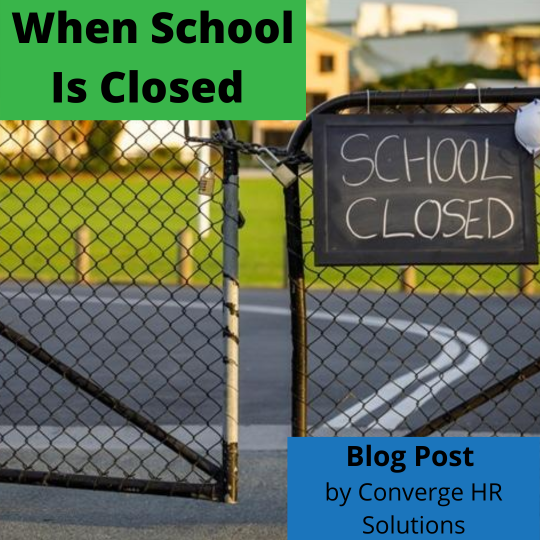
Florida State University, caused a roar when
they announced last month, via memo, that the school’s employees could no
longer care for their children while they worked remotely (reinstating a
pre-pandemic policy). The backlash across the nation was so swift and fierce
that the university quickly redacted the statement, stating: “We want to be clear—our policy does allow
employees to work from home while caring for children”.
While that clarifies the
policy for Florida State University, where does it leave everyone else? As most
schools are just starting to announce their plans for fall, it leaves most
employers in limbo when determining what kind of leave they are able to
approve, and how flexible they need to be. We have had a taste of how difficult
this situation will be this fall because many summer camps were unable to
operate this summer. Summer camp, like schools, is a staple of childcare for
most working families. The issue of how to now juggle childcare, and work, is a
major one.
While we do not know
exactly yet what schools will do this fall, and all schools will have different
plans, it is safe to assume that we are not yet returning to the pre-pandemic
school system. A Gallup survey found that 54 percent of parents
surveyed said their child’s remote learning has been difficult to manage.
Parents often cited reasons such as short attentions pans in children, and lack
of motivation. Further, in 700 company’s surveyed Gallup found that child care
is one of the largest hurdles in preventing employees from returning to work.
It also causes the most decrease in employee productivity.
The Department of Labor
(DOL), has issued lengthy guidance about the emergency Family and Medical Leave
Expansion Act (EFMLEA). It is suggested that Intermittent EFMLEA leave may be
taken if the employer and employee can come to an agreement. Employees would
need to submit documentation that their child’s place of care or school is
closed, and the employer can use it to claim a tax credit.
Another option is FMLA
leave, which is taken typically to deal with medical issues for family members.
Previously parents of special needs children were able to use FMLA to attend
school meetings, therapies, and medical appointments. Parents who are
able to show evidence of a child’s medical condition or disability that
requires them to oversee remote schooling (beyond any entitlement under FFCRA),
have this as an option.
Many organizations do
not want their employees to have to exhaust their PTO to care for their kids.
An unpaid leave of absence may be another option, although this results in an understaffed
work environment and the employee is left without a paycheck. While many larger
companies are providing resources to keep children engaged through virtual
camps, daily challenges, or activities (the goal of these programs being
entertained children will lead to focused employees), it is a band aid and not
a solution. As well, many smaller companies do not have the ability to do this.
The answer to what to come is still unsure, but decisions that companies are
making right now will affect the entire labor market in the long haul.
Now more than ever is a
time to be flexible and understanding with your employees. You must consider
creative options to meet your business and employee’s needs. You may need to
redefine goals, performance expectations as well and how you manage your
employee’s performance. How you handle
this situation will effect employee retention, employee morale and company culture.


0 Comments